“Science buskers has kindled passion, determination and scientific curiosity among young Africans.”
Knowledge Chikundi is the founder of the Science Buskers Festival, Africa’s only international science communication competition for primary and high school students and teachers. He tells us why the festival is helping thousands of students across the African continent dare to dream
I have always been passionate about teaching. In junior high school, I would teach maths and science to my classmates. Then, in senior high school, I taught a maths class of over 40 students in my own home. This class included older members of the community who needed to retake national maths exams. My deep love for empowering more people in science and maths also drew me towards teaching physics.
Students and teachers in Zimbabwe often face challenges when accessing STEM education, due to a lack of resources, opportunities and support infrastructure. However, the adoption of science and technology creates possibilities for economic and societal growth.
I founded the Africa Science Buskers Festival, a science communication where primary and high school students are celebrated and rewarded for their science communication, research and innovation skills. The platform encourages the dissemination of scientific concepts using low-cost, locally available materials in interactive and engaging ways.
We have seen our science shows sparking a love for science in young people. Between 2016 and 2019, we engaged over 100,000 students in Zimbabwe, Zambia, Botswana, Malawi and South Africa. It is touching to receive messages from these children saying they want to be like us – they too want to communicate science.
Science Buskers has kindled passion, determination and scientific curiosity among young Africans. It has inspired them to use science and technology to solve some of the greatest challenges in their communities. Participants have gone on to have asteroids named after them, receive scholarships into their dream research universities, get into prestigious internship programs and start their own companies.
Witnessing Science Buskers transforming dreams, opening opportunities, uncovering talent, unlocking potential and empowering possibilities in young people has been the major highlight of the program. We have been amazed by the aspirations and ambitions of students once they participate in Science Buskers.
My favourite experiment to do for schools is the film-canister rocket experiment. All that’s needed is bicarbonate of soda, vinegar (both of which can easily be found in most kitchens) and a film canister. Students love it because they experience the loud popping sound the film canister makes when it flies into the air. I have seen this simple experiment inspire students to dare to dream.
When I’m not working, I like to hike in the mountains. And my top tip for young people is never give up!
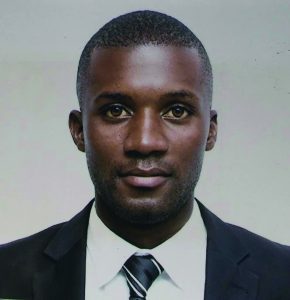 Knowledge is not only the founder of the Africa Science Buskers Festival, he is also the founder and director of the Zimbabwe Science Fair, a platform for recognising and empowering the country’s most promising young scientists and engineers. These young people are developing ideas that could solve society’s grand challenges.
Knowledge is not only the founder of the Africa Science Buskers Festival, he is also the founder and director of the Zimbabwe Science Fair, a platform for recognising and empowering the country’s most promising young scientists and engineers. These young people are developing ideas that could solve society’s grand challenges.
A POTTED HISTORY
Students and teachers in Zimbabwe often face challenges when accessing STEM education, due to a lack of resources, opportunities and support infrastructure. However, the adoption of science and technology creates possibilities for economic and societal growth.
I founded the Africa Science Buskers Festival, a science communication where primary and high school students are celebrated and rewarded for their science communication, research and innovation skills. The platform encourages the dissemination of scientific concepts using low-cost, locally available materials in interactive and engaging ways.
We have seen our science shows sparking a love for science in young people. Between 2016 and 2019, we engaged over 100,000 students in Zimbabwe, Zambia, Botswana, Malawi and South Africa. It is touching to receive messages from these children saying they want to be like us – they too want to communicate science.
Science Buskers has kindled passion, determination and scientific curiosity among young Africans. It has inspired them to use science and technology to solve some of the greatest challenges in their communities. Participants have gone on to have asteroids named after them, receive scholarships into their dream research universities, get into prestigious internship programs and start their own companies.
Witnessing Science Buskers transforming dreams, opening opportunities, uncovering talent, unlocking potential and empowering possibilities in young people has been the major highlight of the program. We have been amazed by the aspirations and ambitions of students once they participate in Science Buskers.
My favourite experiment to do for schools is the film-canister rocket experiment. All that’s needed is bicarbonate of soda, vinegar (both of which can easily be found in most kitchens) and a film canister. Students love it because they experience the loud popping sound the film canister makes when it flies into the air. I have seen this simple experiment inspire students to dare to dream.
When I’m not working, I like to hike in the mountains. And my top tip for young people is never give up!
 Knowledge is not only the founder of the Africa Science Buskers Festival, he is also the founder and director of the Zimbabwe Science Fair, a platform for recognising and empowering the country’s most promising young scientists and engineers. These young people are developing ideas that could solve society’s grand challenges.
Knowledge is not only the founder of the Africa Science Buskers Festival, he is also the founder and director of the Zimbabwe Science Fair, a platform for recognising and empowering the country’s most promising young scientists and engineers. These young people are developing ideas that could solve society’s grand challenges.
A POTTED HISTORY
In September 2013, Knowledge, then an undergraduate chemistry student, worked with the University of Zimbabwe and the Ministry of Primary and Secondary Education to set up a STEM education programme for primary and secondary schools. Launched under the banner of a project called START Science, the programme involved university students going into two schools in the capital city, Harare. The students started helping pupils with their projects for the Zimbabwe Science Fair, which was set up by Knowledge in 2014.
As the schools’ science pass rates dramatically improved, the programme was rolled out to more schools across Zimbabwe, and, in 2016, Zimbabwe sent its first national science fair winner to the Intel Science and Engineering Fair in Arizona, USA.
Buoyed by this success but still wanting to achieve more, Knowledge took inspiration from The Science Circus, an initiative of the Australian National Centre for Public Awareness (CPAS). CPAS master’s students deliver ‘jaw-dropping performances’ in Australian schools, teacher development workshops and hands-on exhibitions for the wider community.
Realising that the Zimbabwe Science Fair was a huge draw for students, Knowledge started the Science Buskers Festival in 2017. At the inaugural event, 20 teams from secondary and primary schools across the African continent presented their most creative science projects, and the winners were presented with a shield and $500 Zimbabwean dollars for books of their schools’ choice.

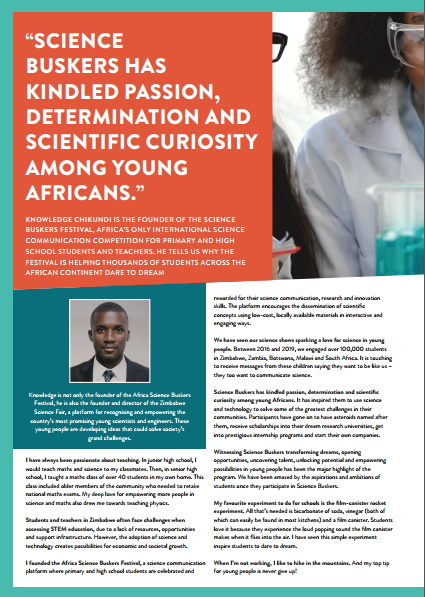
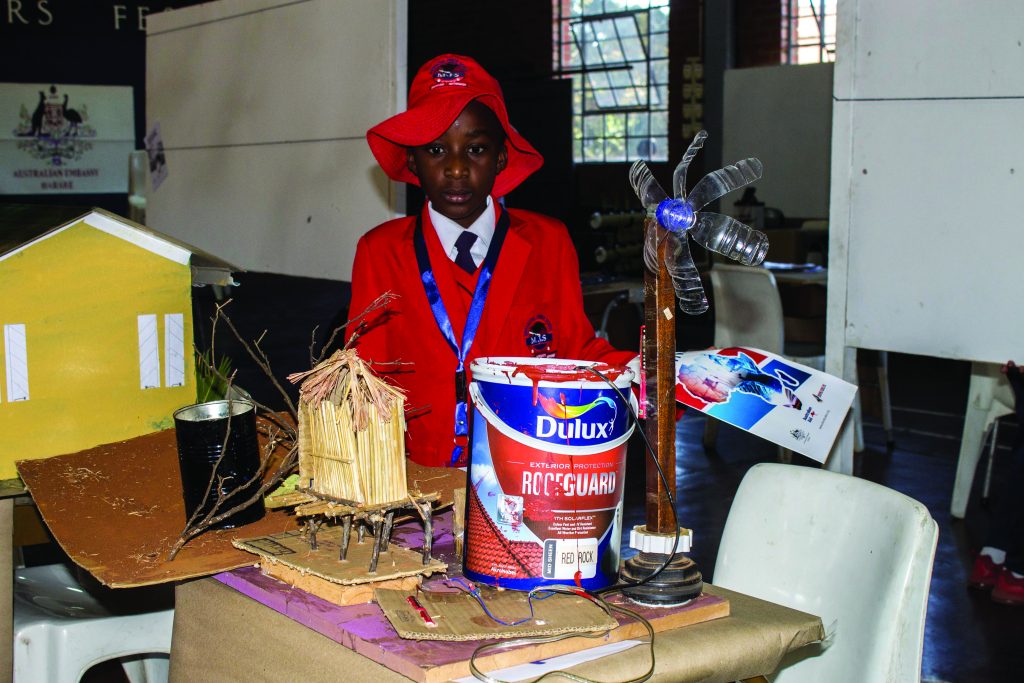
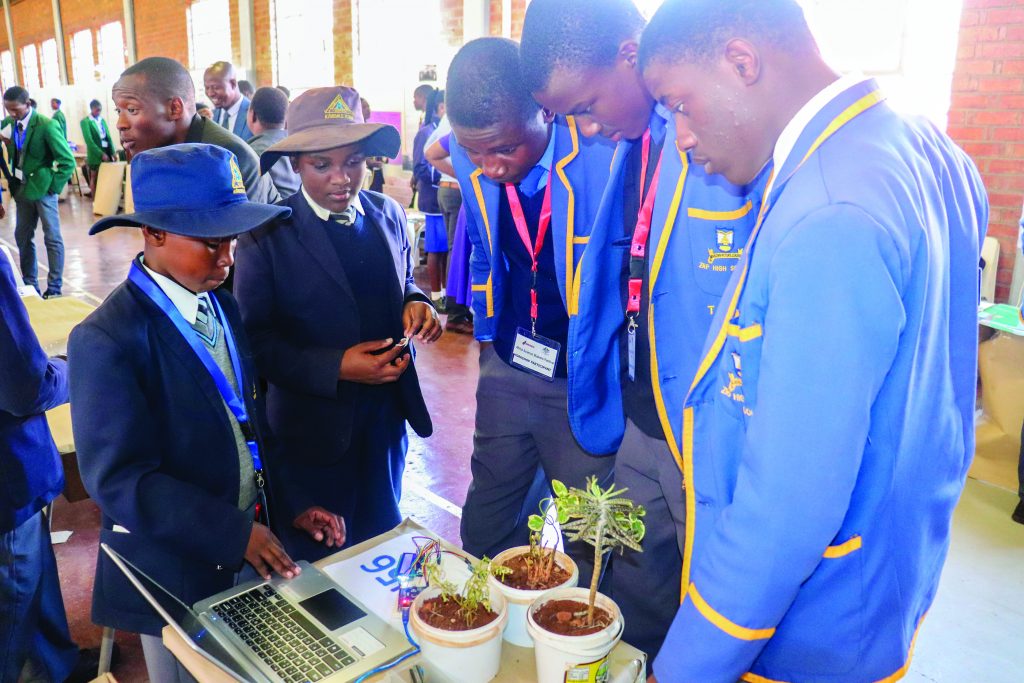
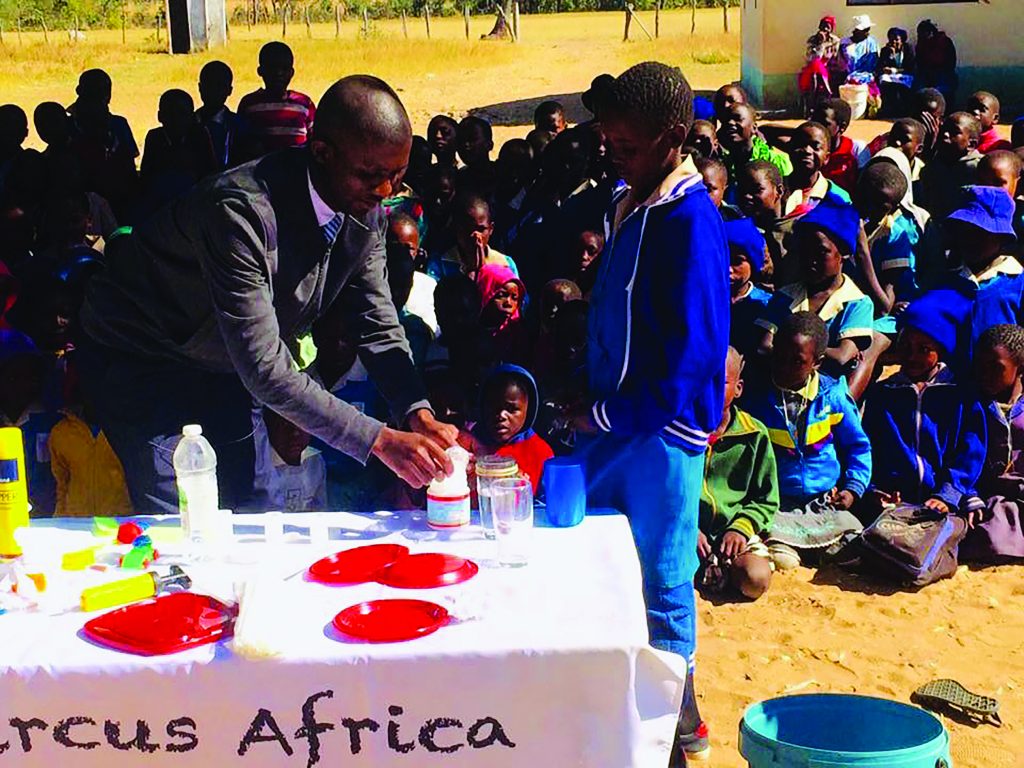

Knowledge is a friend and I attest to all written here of him.